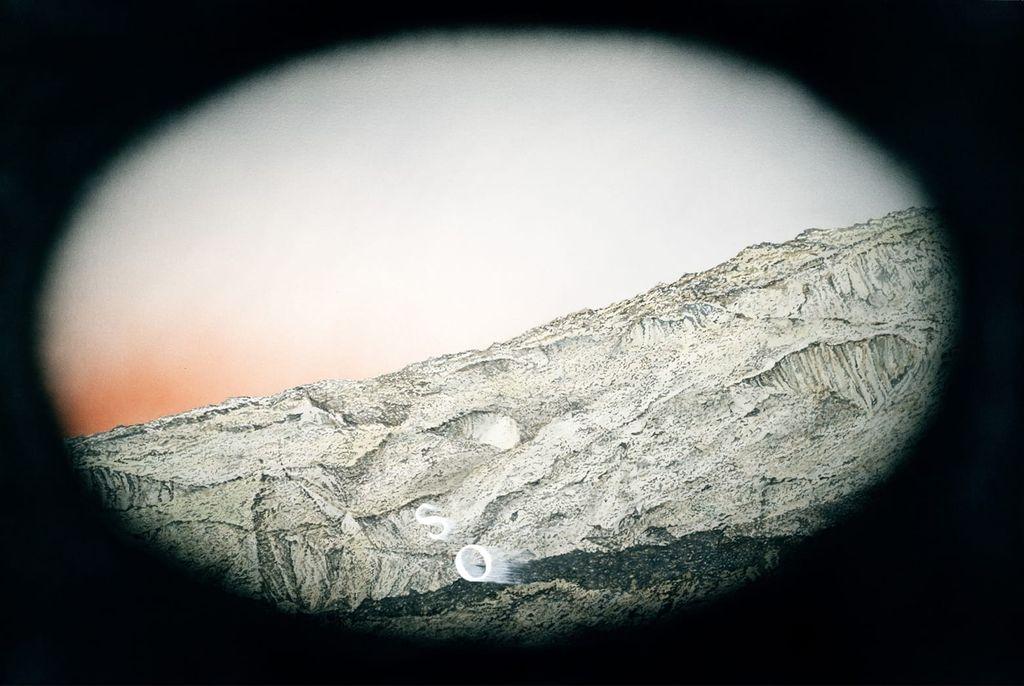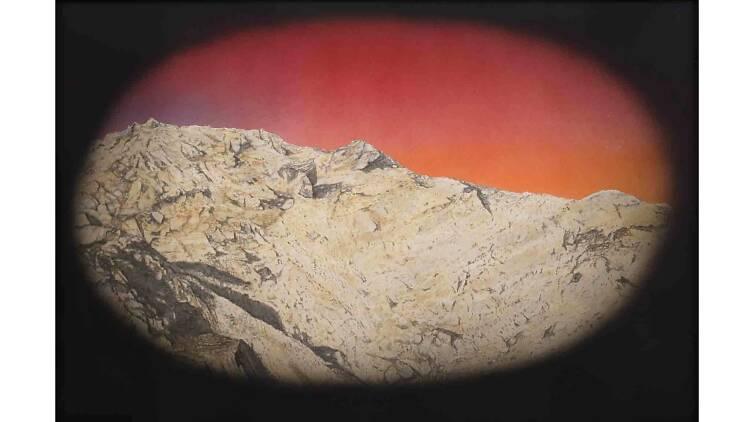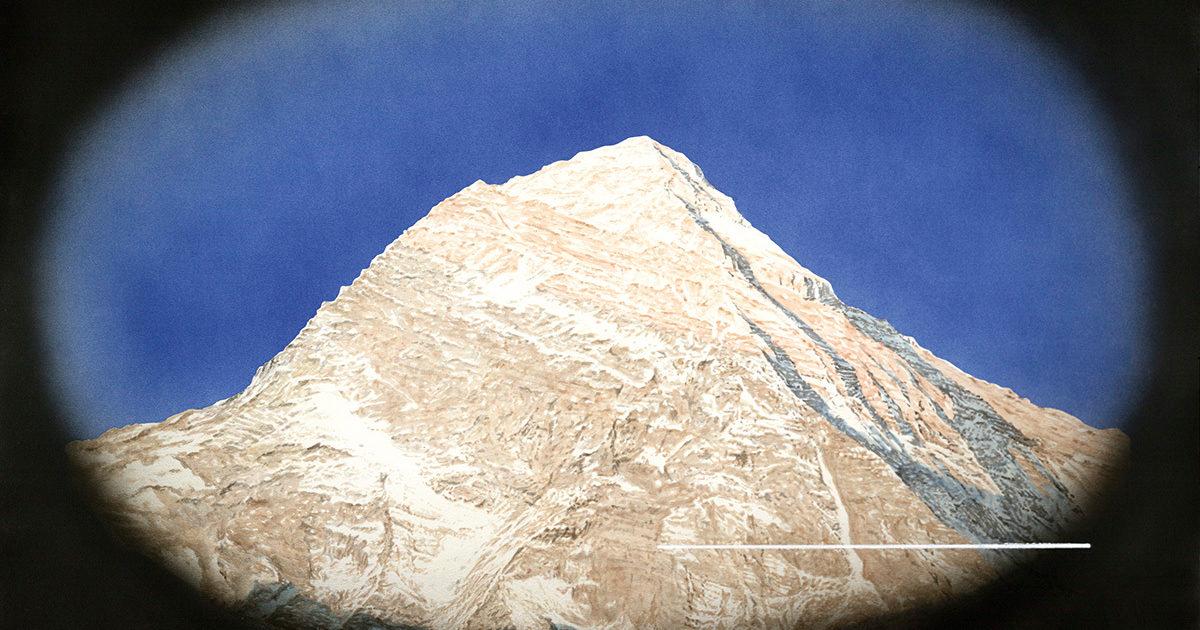Ed Ruscha's "Spied Upon Scene" series, initiated in 2017, offers a contemporary exploration of majestic mountain landscapes that evoke the grandeur found in travel books, postcards, adventure films, or even the iconic Paramount Pictures logo. This series builds on Ruscha's earlier "Mountain Paintings," where cryptic phrases overlay the mountainous imagery, adding a layer of narrative or commentary to the visual experience. However, "Spied Upon Scene" distinguishes itself by presenting these landscapes as if viewed through restrictive apertures, such as oval-shaped lenses or window grids, partially concealing and framing the views in a manner that prompts reflection on the act of observation itself.
The inspiration for "Spied Upon Scene" finds roots in the work of Louis Michel Eilshemius (1864–1941), an American painter whose distinctive approach included painting frames directly onto his canvases. This technique created a unique sense of boundary and focus, a method that Ruscha has adapted to frame his landscapes, intertwining his contemporary vision with historical echoes of the American Sublime tradition.
Eilshemius's influence on Ruscha extends beyond stylistic mimicry to a shared thematic exploration of landscape as more than mere representation. Both artists challenge viewers to see beyond the physicality of the scene, inviting contemplation of the landscape as an idea, imbued with layers of meaning and interpretation. Eilshemius's romantic, dreamlike depictions, often framed by his self-made, painted borders, suggest a window into an enchanted, alternate reality. This conceptual framing resonates with Ruscha's "Spied Upon Scene," where the landscapes, though obscured, hint at unseen narratives and unexplored depths.
The exhibition "Ed Ruscha: Eilshemius & Me," which showcased works by both artists, illuminated the dialogues between their practices, underscoring Ruscha's fascination with Eilshemius's work and the broader historical context of American art. Through this pairing, Ruscha's landscapes emerge not just as visual spectacles but as meditations on the nature of seeing, the boundaries of representation, and the enduring allure of the American landscape. (Gagosian) (FAD Magazine) (moom bookshop).


